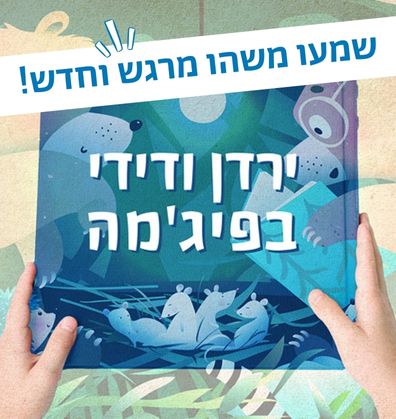Or, Keren, Sabich, Richelle – we each have a name, and each name has its own meaning. Our name is an important factor in our identity as we and others' see it. When we meet new friends, the first detail we discover about them is their name; and when babies are born, people immediately ask what their parents named them. The Midrash says a person receives several names: "שְׁלשָׁה שֵׁמוֹת נִקְרְאוּ לוֹ לָאָדָם: אֶחָד מַה שֶּׁקּוֹרְאִים לוֹ אָבִיו וְאִמּוֹ, וְאֶחָד מַה שֶּׁקּוֹרְאִים לוֹ בְּנֵי אָדָם, וְאֶחָד מַה שֶּׁקּוֹנֶה הוּא לְעַצְמוֹ. טוֹב מִכֻּלָּם מַה שֶּׁקּוֹנֶה הוּא לְעַצְמוֹ" (תנחומא ויקהל א)
Age Group: Second Grade
“There are three names by which a person is called: one which their father and mother call them, one which people call them, and one which they earn for themselves. The best one of all is the one they earn for themselves” (Midrash Tanhuma Vayakhel A)
On the path to discovering the meaning behind Grandpa Sabich’s name, Keren and Or are told about Olim – new immigrants – and how they came to Israel and settled here in its early days.
Kibbutz Galuyot – The Gathering of Israel from Exile
The prayer and hope that G-d will gather all Jews from all corners of the Earth and bring them to Eretz Yisrael has its roots in biblical prophecies, and is the basis of the Zionist vision. Over the years many new immigrants have come to Israel from across the globe, and made it their home. With them they bring different customs, languages, and culture, as well as special dishes. Integrating into a new place changes people, and affects their new surroundings. What do we choose to hold onto? What should we leave behind? These questions have been a topic for keen discourse since the State of Israel was established, and the answers seem to change from one family and generation to the next.
Book-Related Video
Copies Distributed:
45,500
Publishing:
כנרת
Year of Distribution:
Tashach 2017-2018


